United Arab Emirates -

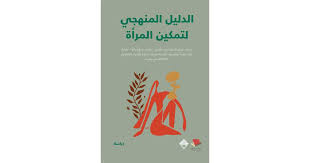
The term “women’s empowerment” has invaded the research literature and reports issued by civil society organizations in the Arab region, without sufficient introduction to this term, its dimensions, indicators, and methods for measuring it, especially in view of the geographical and cultural specificities, and the different historical circumstances of women from one country to another: the empowerment of women in... Belgium, or Ecuador is not the same as empowering them in Syria. This is precisely what justifies the interest in publishing the “Methodological Guide to Women’s Empowerment,” prepared by the work team in the “Gender and its Indicators” project, managed by the Women and Development Committee of the General Department of Cooperative Development (DGCD) in Belgium. Instead of adopting a fixed template that applies to all women, this guide takes into account the cultural specificities of each society and proposes a flexible methodology that allows for the formulation of empowerment indicators. Empowerment, according to the words of the authors of this guide: “is not based on a process of horizontal development, or fixed values in society, but rather a cumulative process built on the activities of women’s movements, as well as mixed movements.” Thus, this guide explores the relationship of the concept of empowerment to other related terms, such as: power, distribution of responsibilities, and building identity.
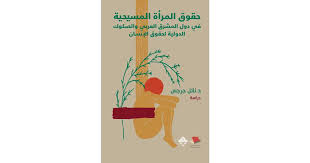
This book directs a harsh criticism of the legislative and political system of the countries of the Arab Levant, which violates international human rights instruments, which affects - in particular - the rights of women, especially non-Muslim women who are subject to discrimination on the basis of gender and religion. Through a detailed legal study, Dr. Nael Girgis, the Christian influence of the social and legal system on the rights of Christian women, and the Islamic influence on their rights as well, sheds light on many of the issues that detract from those rights, including: depriving her of inheritance, custody of her children, granting her citizenship to them, and obligating her to obey and submit to men. Who has priority in guardianship over the children. The study is also distinguished by its comparison of the legal situation of Christian women in several Levantine countries, highlighting the contradiction with the International Bill of Human Rights. Thus, the book in our hands is an in-depth legal research that reveals the injustices that befall Eastern women in general, and women who profess or follow Christianity in particular, which guides us to aspects of legislative reform to contribute to building states of law and citizenship that treat their citizens on an equal footing.
By The splendor of Sunbul Omar Al-Jubai by Khalil Mudar Al-Hajji

It is said: “Writing theater is, in a way, knowing how to tell our story.” But the past ten years have undermined the axioms. Instead of asking how, we began to ask: Why do we talk, and about what? Thus, these four texts come today to answer these questions in their own way, and carry the concerns of their writers “here and now.” A text depicting the city as he sees it: two elderly people guarding public toilets on a street in Damascus; Where stories seep out from under dirty bathroom doors, another about a young man who spends most of his time in the kitchen, unable to work and interact with others, and instead tries in vain to stop the water dripping from the tap so as not to drown him, and a third text about a faltering relationship between a Syrian young man residing inside... A Syrian woman residing in Germany. As the two try to maintain the connection that unites them in the face of the difficult circumstances of their lives, a final text sheds light on the mentality that prevails among Syrian artists in “Despora,” and affects their work mechanisms and their relationship with cultural institutions, by shedding light on the rehearsals of a theater group preparing for the play “The Return of Danton.” With projections on the Syrian situation. Taken together, the texts of this workshop form an image that resembles its spaces with the questions of these spaces, or with the absence of questions, with the blurring or dominance of memory, with confusion, with boldness, with violence, and with death. Stage masters.
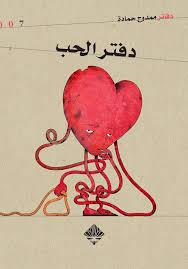
Love is the most dangerous and mysterious emotion. The most dangerous of these is because the lover often loses the ability to appreciate reality. Nothing makes him ready for death as love does. How many men lost their lives to reach their loved ones, and how many women defied their societies and were killed for a moment of connection with their beloved. History and literature tell us about many love stories that ended in death or madness. Because love is a powerful emotion that pushes the sails of the heart into the gates of an adventure with choppy waves. It does not value any danger, and it never accepts submission to mental trials. As for the ambiguity of this emotion, it comes from ignorance of its causes. Most of the time, we do not fully know what we love about the person we love, and we often discover in him the opposite of what we thought when we loved him. Love - despite its arrogance - remains the most fragile of emotions, and often dissipates when it comes into contact with reality. Just as it blows like a storm, it can suddenly calm down, leaving... The air behind him was filled with dust. Despite everything, love remains the most beautiful feelings that a person can possess, and the moments of connection that often precede a tragic end for lovers may be the happiest moments they live.
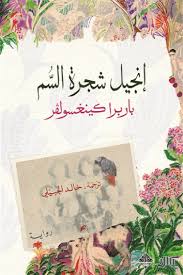
Nathan Price, a Baptist minister, leaves civilized America, going on a missionary mission to the Belgian Congo, bringing with him his family, who carries with them everything they think they will need, but the African land surprises them, turning everything they brought into something worthless, and even their very existence will be full of challenges. Especially with the political events that are ravaging the country that is struggling to gain its independence, and the major powers are interfering in it, assassinating Patrice Lumumba, the country's first elected prime minister. The novel is alternately narrated by the mother, who loses something irreplaceable there, and her four daughters, each of whom narrates what is happening in her own way, trying to find her own separate path to salvation. “The Poison Tree Gospel” is an intense journey in the vibrant African land, and a deep exploration of the other, written with a smooth narrative in which Barbara Kingsolver worked to transform the thorny threads of religion, politics, and race into a piece of literature of breathtaking beauty. This novel was nominated for several literary awards, was translated into more than thirty languages, and sold more than four million copies around the world.
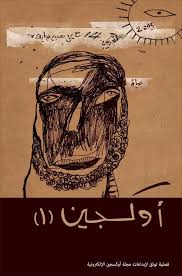
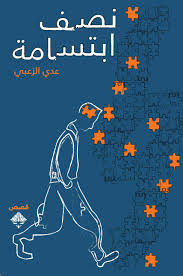
In the introduction to his first collection of short stories, the Chinese storyteller Lu Xun says that he found himself driven to write because he felt intense loneliness. He was not able to forget, or, rather, he was not able to forget completely; So, he wrote stories about the past. This is exactly what prompted me to write: overwhelming loneliness. I also failed to forget, so I wrote what remained in my memory about Syria before the war. Sometimes, exiles write about nostalgia for a country they miss and wish to return to. This is not like the nostalgia of Syrians: the country has completely changed, and even disappeared. We long for a place that does not exist, except in memory. And memory, as you know, writhes, colors, and churns. I am no exception, and my memory does not claim to be completely faithful to reality, but I tried hard to write exactly what you dictated to me. Hopes, dreams, and losses are all fading quickly, and so is the country, and what remains of it is in us: as if it were a half-smile, or a summer cloud, or a bright comet passing quickly, only to disappear completely moments later, before the eyes of curious, bored viewers, indifferent to its fate...
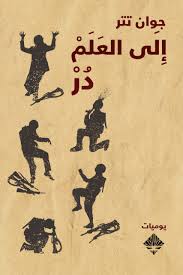
Joan Tatar's memory falters on scenes that Syrians experienced in the laboratory of their torment. It is the slow Syrian time that brings and brings with it in Tatar’s diary the various elements of the experience: starting from the market, to the soldier, to being discharged from it, in a biography that contradicts time, from symbolic death to symbolic birth, in a country that resembles a long dormitory crowded with people. Throughout this cycle of Syrian life, murmurs and stinks are present. Life, as Joan Teter portrays it in this book, is an experiment with low sounds that end in final silence. An experiment with the depths of fear. Is it deeper than we imagined? Is it possible to escape from the fear that has become part of water, and from thirst, part of glut, and part of hunger? Many opposites meet on that distant horizon that made the Syrian dough in the soldier’s laboratory. Were they prisoners or soldiers? Are they condemned or heroes? Everything is equal, all values are equal in that horizon which is the space of Syria, the space of fear and pleas for freedom.
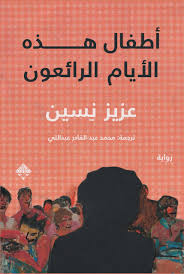
Zainab and Ahmed are two children who were separated from sharing school seats by Zainab’s move with her family to Ankara, and her boyfriend staying in Istanbul. The letters became their way of maintaining their friendship by exchanging funny stories, daily adventures, and discussing the oddities of the adult world: adults’ confusion in front of their managers, and parents’ desperation to showcase their children’s talents. “The wonderful ones” in front of the guests, and the parents’ insistence that they were all outstanding, obedient, honest, and of course the top of their class. In this novel written for children, parents, and teachers alike, Aziz Nesin reconstructs events from the perspective through which children see the world, judging the behavior of adults and the double standards they live under. Like his always controversial books, the book - this time - provokes adults by revealing their image in the eyes of their children, thus asking: What happens to children when they grow up?
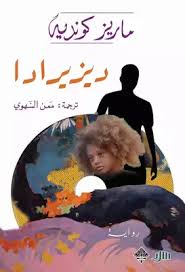
Marie Noël does not know who her father is, nor does she know why her mother abandoned her immediately after her birth and left her in the care of Ranleys, nor does she know what prompted this mother to send a letter ten years later demanding her daughter. The girl travels into the unknown, living with an emotionally cold mother, tormented by memories of the past. After she grows up, she goes to Boston to complete her studies, and marries an innovative jazz musician, while the question, “Who am I? And who is my family?” continues to haunt her in all the places she lives, and so she seeks to understand what happened before she was born, but a series of dark secrets... And the elusive facts are faced. In this novel, which won the Prix Carbet de la Caraibe, Maryse Conde writes a tale of lost love and unwanted motherhood, capturing the voice of the Caribbean diaspora with grace and sweetness.
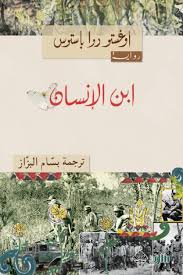
Remembering his childhood, Miguel tells of a wooden statue the size of a man, carved by a musical instrument maker before his death, so the people of Itape decided to place it at the top of the hill, so that it would become a landmark of the village. Massive events and wars take place, and the novel branches out to narrate the events of two decades of Paraguayan history, before returning to that hill with its steadfast statue, which has become very symbolic. Rua Bastos shows history from the perspective of ordinary people, poignantly depicting their attempts to rebel against authority, revealing the brutality of the ironies of history when these people are forced to kill and die in senseless wars that they fight while standing with the very authority against which they rebel. Using a linear sequence in narrating the events of his novel, and painting a huge mural about Paraguay, Rua Bastos writes, in a tight plot, his novel, which the great Argentine writer Borges said was one of America’s best novels...
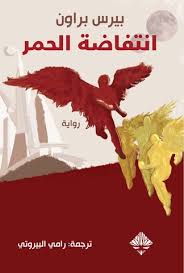
Will people change with time? What will the struggle for power be like seven hundred years from today? Where does the humiliation come from: from the other’s enslavement of you or from your submission to the idea of being a slave? What would change in the balance of good and evil if you had the opportunity to be in the place of your enemies: live among them, and see life from their perspective? Many questions are raised by Pierce Brown in his vision of the world of the future, which seems more cruel, but does not differ in its laws from our current world. He tells the beginning of the story of Darrow, who belongs to the red class, the lowest class of the future society painted in colors. Like the people of his class, he works every day to make the surface of Mars a habitable place for life. He goes on dreaming of a better future for his children, believing that all classes of this society, including the golden leaders; They work for this dream, but he soon discovers the betrayal to which his people were exposed, and the illusion they live for. Motivated by the pain of a lost love, he embarks on a journey of revenge in order to overthrow his enemies, in which he is not deterred even by becoming one of them.
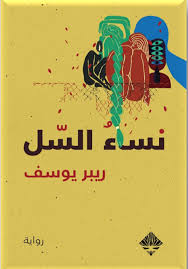
Stories that begin, develop, become complicated, and are interrupted before they resume again. Their heroines: Siranah, Selti, Salma, Khansi, Aishana, women whose paths and destinies intersected in that charming region of northeastern Syria, with which the “Berlin-Baghdad Railway” tampered with and the destinies of its residents. . From the plains of Mardin, the cities of Amuda and Ras al-Ain, and the villages of Shorik, Kondak, and Tal Halaf, these women whisper secrets in their low, intermittent voices filled with fear and illness. But their stories and songs go beyond their bodies’ struggle with tuberculosis, to immortalize the struggles of the Yazidis, Syriacs, and Armenians with oppression, massacres, and eternal alienation. In Women of Tuberculosis, Reber Youssef, with his poetic language and his special sensitivity, explores the northeastern region of Syria, including its diversity: ethnic, religious, and racial, relying on in-depth historical, geographical, and anthropological research into what people live in that part of the earth, but he... Through his work, he creates a curiosity to explore history once again, after the northeast of the country now has the face of a woman.
By Anna Maria Matute / Translated by: Ali Ibrahim Ashkar
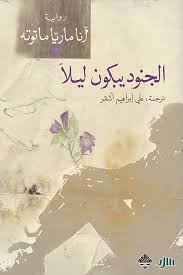
After his return to the island, Manuel decides to dig into the past to recover the details of the murder of the man he adopted. He also tries to get to know more about the wife of Khatha, the mysterious man whom he had only met briefly, but who left a great impression on him. “Khitha,” the absent man, is the most present in the novel, and his presence will change the fate of the lives of its characters, including his wife, who irrevocably left her previous life and went on to rediscover herself after her meeting with him. In the novel “Soldiers Cry at Night,” Anna Maria Matute attempts to experiment with new narrative methods based on mixing the narrators’ voices so that the speech of all the characters seems, in one way or another, to be one continuous dialogue. The dense, highly sensitive and delicate spectrum of characters in this novel will continue to haunt the reader and motivate him to re-read the book, which ended prematurely, leaving many outstanding questions.
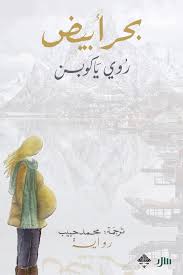
Alone on Baraway Island, Ingrid lives after everyone has left, roaming the ruins, repairing what can be repaired, and catching fish and bodies that wash up on the island's shores. The young woman struggles to hide a big secret that could put her in danger, as the country witnesses the final months of World War II. In this novel, Roy Jacobsen completes the story of Barawe Island, which began with "The Invisibles", with his delicate narration, natural images, and brief sentences that hide the truest and hottest feelings behind them. “White Sea” is a novel about new beginnings that make their way from the ashes of a devastating war, about friendships and love, the faces of those passing by and the dead, and about people who remain where they are in the face of war, bidding farewell to the departed and receiving those returning, and monitoring the passing of days and the succession of seasons.

Enter your address and we will specify the offer for your area.